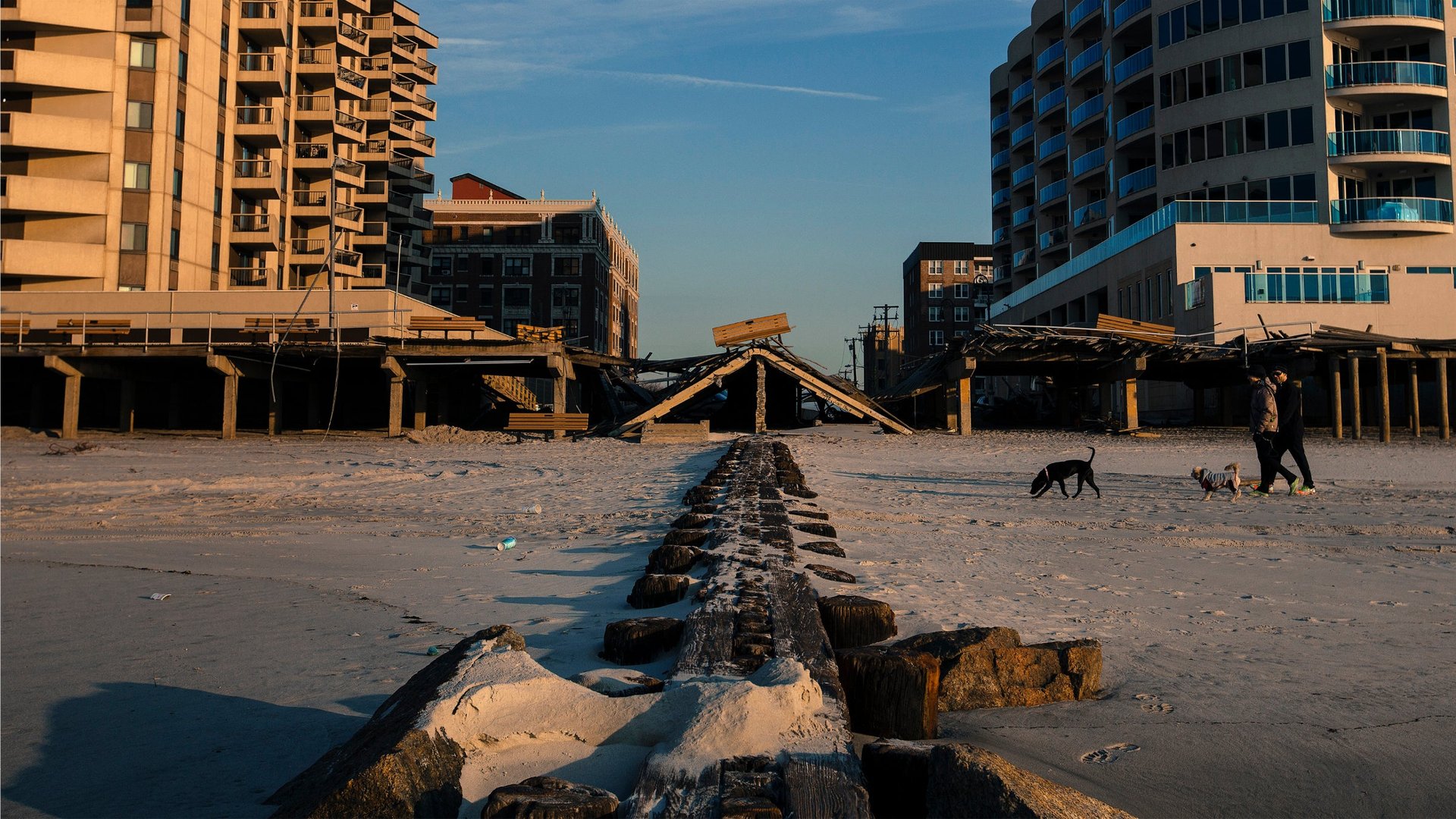This Fourth of July brings little celebration of America for us Sandy victims
At our bayside house in Long Beach, New York—one of hundreds of thousands damaged in Hurricane Sandy—the main floor still has no inner walls and we have retreated upstairs sans kitchen.


At our bayside house in Long Beach, New York—one of hundreds of thousands damaged in Hurricane Sandy—the main floor still has no inner walls and we have retreated upstairs sans kitchen.
It’s the fourth of July, usually peak beach season around here. But this Independence Day, neither our neighborhood nor community is faring much better than eight months ago.
From our bedroom window, I count five empty houses on our street. There is Tyvek instead of siding, a hole where a garage used to be. Two neighbors who remodeled quickly because they had to, were ordered to tear the whole thing down.
We are far from the only people still waiting for the bulk of the funds we need to rebuild. Others are simply walking away.
At the beach, the boardwalk is being rebuilt but closed, as is a local elementary school. More crucially on our Long Island barrier beach—where the population swells to tens of thousands in the summer—we no longer have a hospital.
It does not escape me that as a foreign correspondent, I saw raw sewage in Guatemalan slums, Chinese families bundled into a house meant for one, Haitian migrant workers grateful to live in a crowded hut in the Dominican Republic. I try to remind myself that Sandy is a “first world disaster.”
Still, everything is relative. A “minor medical procedure” is always someone else’s. And destruction at home hits hard, even when you have a basis of comparison. Not only do I want my house back, I want a leader who will reassure me this can—and will—happen. But I don’t have one. Not in New York, anyway.
Our governor Andrew Cuomo mentions storm recovery in the same breath as his motto, “New York is Open for Business.”
Actually it’s not, at least not in my community.
I don’t believe our local officials who now tell me we are “on the comeback trail” and welcome visitors back to the beach without actually mentioning Sandy.
Oddly, the only politician I do believe is Chris Christie. I find this odd, if not amazing, since the New Jersey governor is a Republican—and, like Cuomo, I am a dyed-in-the-wool Democrat. But I am even considering supporting Christie for president. How did this happen? For one, his slogan is better.
“Stronger than the Storm.”
Yes, words count for something at times like this. Christie’s speak to me because they’re honest (he calls a storm a storm), they’re reassuring (we will be okay), they’re inspirational (gather your strength to get through this).
I’ve been thinking so much about this catchy slogan that I emailed the brains behind it, a real-life “mad man” named Ken Musto who’s the creative director at Brushfire Marketing Communications in Cedar Knolls, New Jersey.
Musto replied: “There is a very strong universal message in our ‘Stronger than the Storm’ messaging, a human truth that can be applied to any campaign anywhere in the world. And that universal truth is that we as people will prevail, no matter how tough things get. On a very deep human level, this is all about survival—an idea that will ring true around the globe.”
And so here I am getting ready to ride my bicycle to the beach, such that it is. I am hoping that the erosion is not too palpable. I am hoping that we will soon start to rebuild our house in a sustainable manner. I am hoping that nobody has a heart attack while walking or driving around town because it could take a half hour or more to get to hospitals on the mainland. The hope, or lack of it, seems overwhelming. I wonder if I should just stay home and check the downstairs again to see if any mold has returned.
Then I remember: I am stronger than the storm.
And off I go.